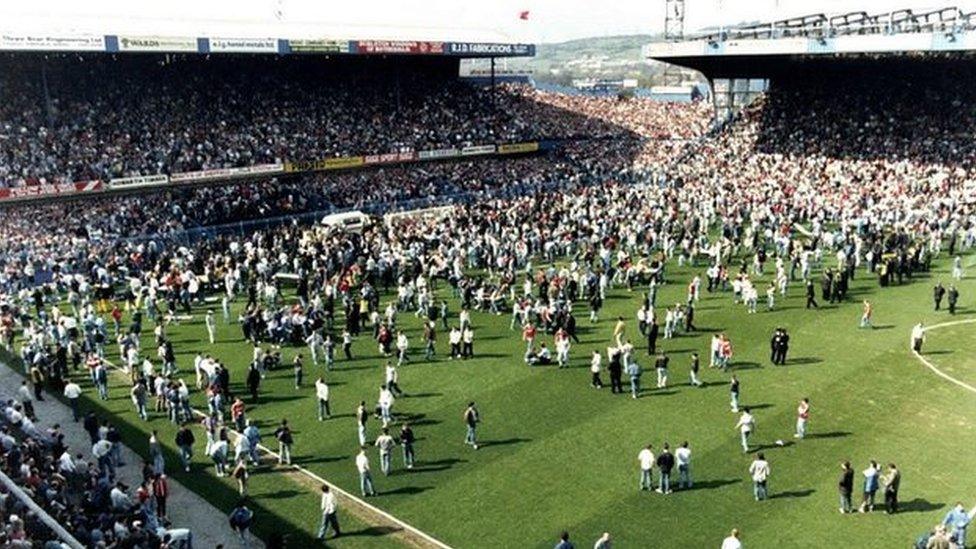What is tragedy chanting and how does it affect fans?
- Published
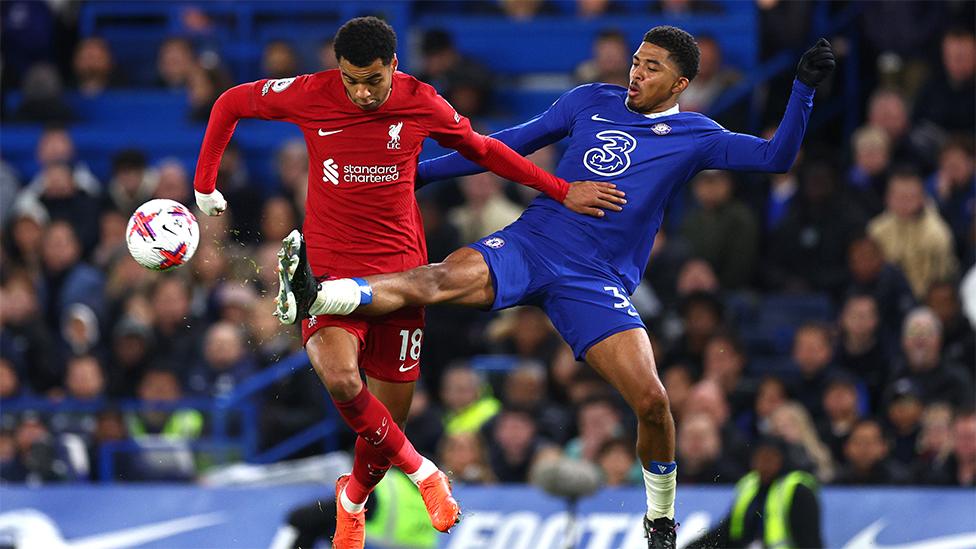
Chelsea condemned the "inappropriate" chants that were heard when they played Liverpool last season
Football fans are known for being loyal and doing as much as they can to try to help their team win.
But a minority of supporters think that means chanting about tragic events involving the opposition.
At June's FA Cup final, a man took it a step further and wore a Manchester United shirt that made offensive comments about the Hillsborough disaster.
Ninety-seven Liverpool supporters died as a result of a crush at Hillsborough Stadium in Sheffield in April 1989.
So with a new season beginning, the Crown Prosecution Service (CPS) has released new guidance, external around punishments for tragedy chanting.
The CPS suggests fans could be stopped from attending matches and tournaments, with additional restrictions such as not being able to travel to certain areas, or being allowed in pubs at game time.
This comes after English football's governing body the FA announced new rules that include a section on tragedy chanting, saying anyone who commits this "vile form of abuse" could be banned from stadiums and arrested.
What is tragedy chanting?
It's when fans sing deeply offensive songs that reference stadium disasters or fatal accidents involving players or supporters.
Despite being widely condemned by everyone involved in the game, it has been part of football culture for decades.
And it continues to happen in 2023.
Both sides' supporters were targeted when Leeds United played Manchester United in the Premier League last season.
In that game, chants about the Munich air disaster and the murders of two Leeds fans in Istanbul in 2000 were traded between the rival fans.
'All these people calling me murderer' - Hillsborough survivors on impact of chanting
What's it like for fans?
Gareth Senior was friends with the Leeds fans killed in Istanbul, Chris Loftus and Kevin Speight, and he's been campaigning for fans to stop tragedy chanting.
"These people wouldn't do it in their nine-to-five lives or in the pub, so why is football any different?" Gareth says.
"That pain will never go away from many people, from their families and the club will always remember them and will always respect them."
Zoe Hodges is a Manchester United fan and says even supporters born after the Munich air disaster feel "a connection to those legends that helped make your club what it is today".
"Football is a very emotional game... everyone lets emotions run away with them, including the players, but there is a line that shouldn't be crossed," the 28-year-old says.
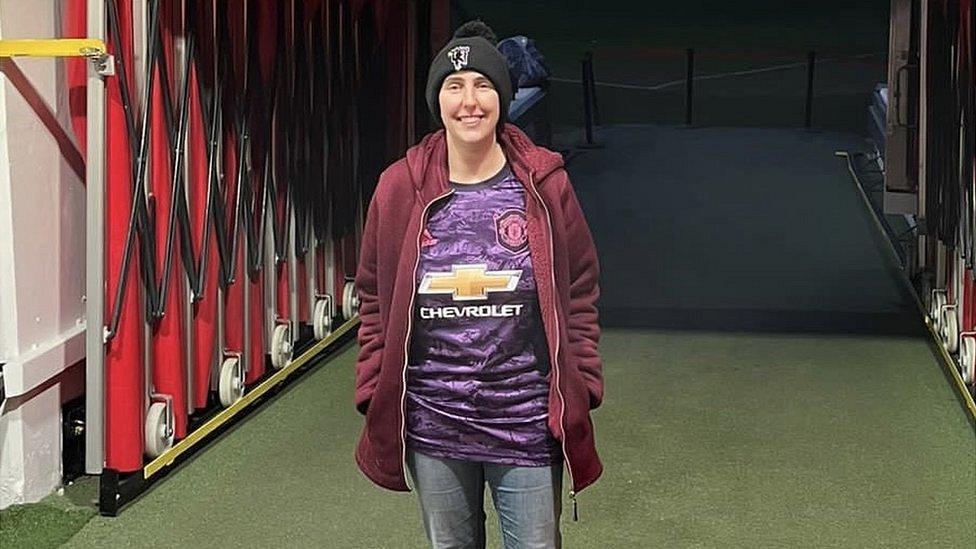
Zoe wants to see firmer action taken against people who sing about tragedies
Another common subject of tragedy chanting is the Hillsborough disaster.
Liverpool fan Ste Hoare is a regular at Anfield and says "there's a real frustration and anger" when he hears those songs from opposition fans.
"It's just pure tribalism," he tells BBC Newsbeat.
"I should be able to take my eight-year-old son to a football game without him having to ask me 'Daddy, why are they calling me a murderer?'
"Literally I've had that exact conversation with my son. That's really difficult to have to do that."
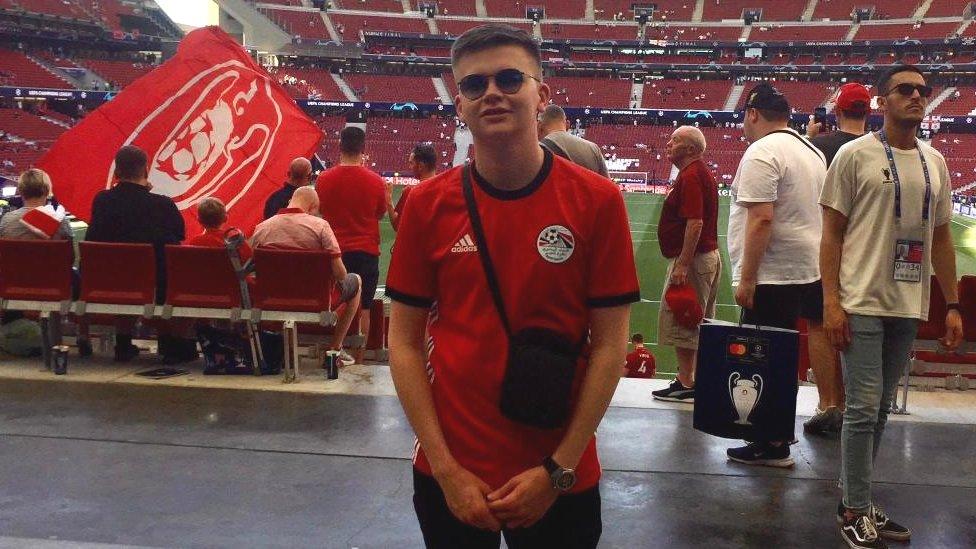
Josh is a Liverpool fan who wants to see clubs crack down on tragedy chanting
Josh Sexton, who's also a Liverpool fan, says the "scars of that day run so deep".
"The city of Liverpool, in some ways gets its spirit from the injustice that it suffered at the hands of Hillsborough," he says.
"Liverpool fans shouldn't still be carrying these horrible stereotypes and being reminded of this terrible day in their history over and over again."
Can clubs crack down?
The negative impact of tragedy chanting has prompted clubs to take action - with some launching educational programs to inform fans of the consequences.
"We had an issue at Liverpool where there was a homophobic chant being sung," Ste says.
He says it led the club to run a strong campaign, which manager Jurgen Klopp was heavily involved in, explaining to fans that it's unacceptable.
Ste thinks it's also important for fans to "self-police" and hold each other accountable for their behaviour.
And 27-year-old Josh is hoping the FA's new rules will have an impact on fans' actions.
"I think it's better than nothing at this stage," he says.
"I hope that clubs do take that really seriously and decide that any fans who are taking part in this are not allowed in football grounds."
For Zoe, she welcomes the changes but thinks they could go further.
"Ban them for life from football," she says.
"I get that people deserve second chances. But the only way we're going to draw these lines properly and make sure people don't cross them is by imposing lifetime bans."
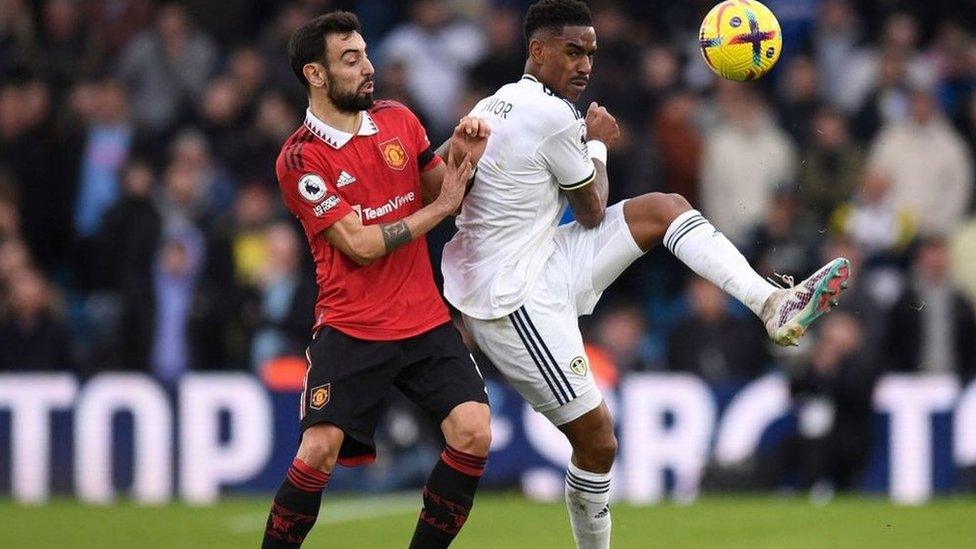
Chants about historic tragedies were condemned after Man United played Leeds earlier this year
What have clubs said?
Clubs like Manchester United and Leeds both "strongly condemned" the chanting last season.
In a joint statement, both said supporters' behaviour was "completely unacceptable".
Manchester United, along with Manchester City and Chelsea, have also previously criticised their own fans for chanting about stadium tragedies.
Liverpool say it "has to stop" and Hillsborough campaigner Margaret Aspinall also previously told the BBC that "drastic action" was needed by the authorities to stop it happening.
The Premier League has repeatedly condemned the chanting, saying it's treating the issue "as a priority and as a matter of urgency".


Follow Newsbeat on Twitter, external and YouTube, external.
Listen to Newsbeat live at 12:45 and 17:45 weekdays - or listen back here.
- Attribution
- Published31 July 2023
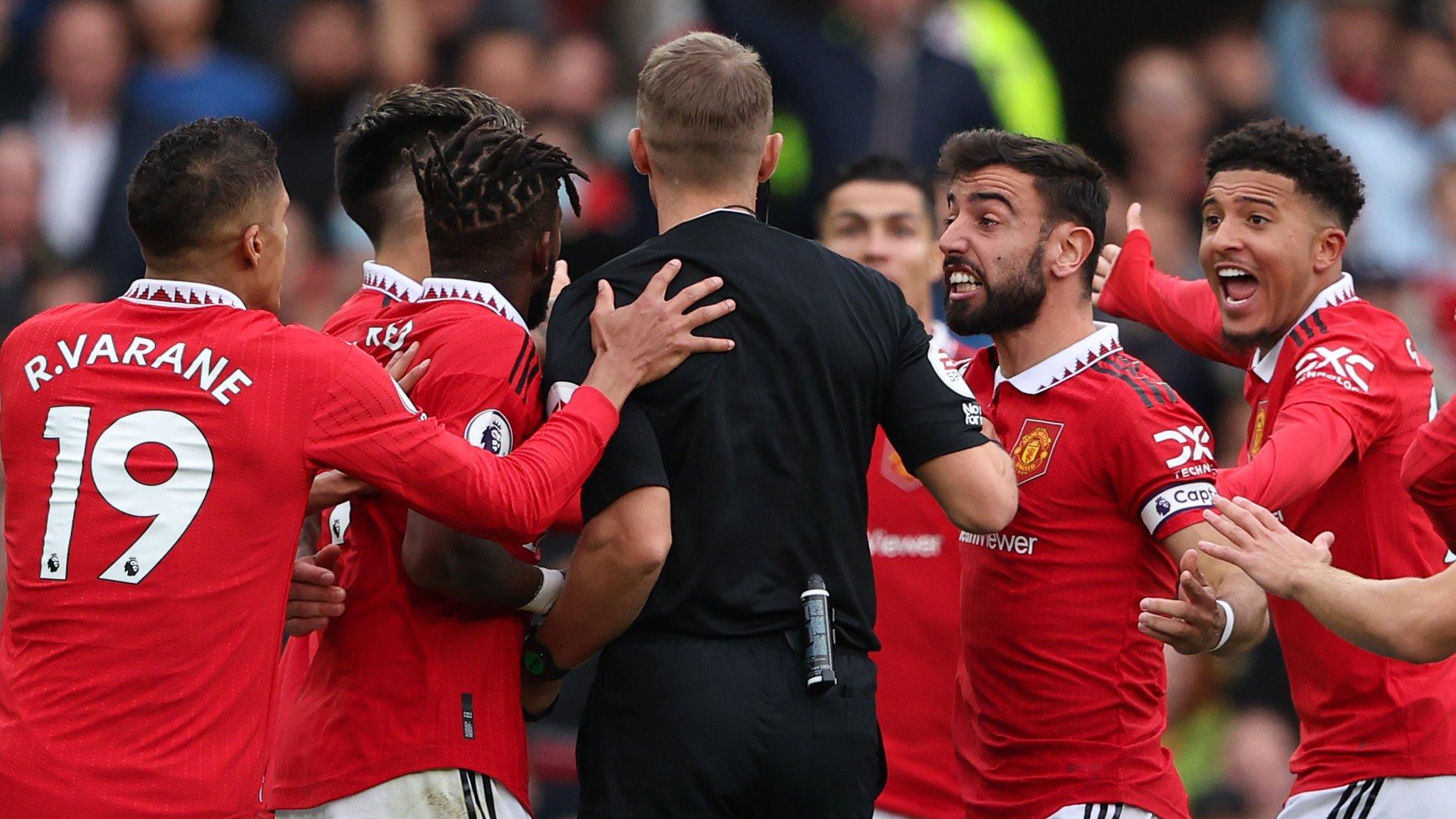
- Published19 June 2023
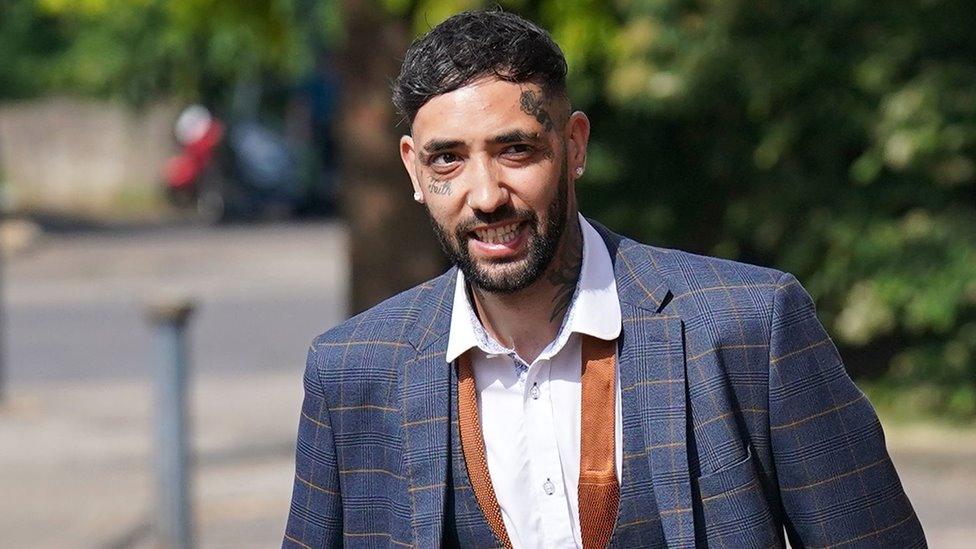
- Attribution
- Published4 April 2023
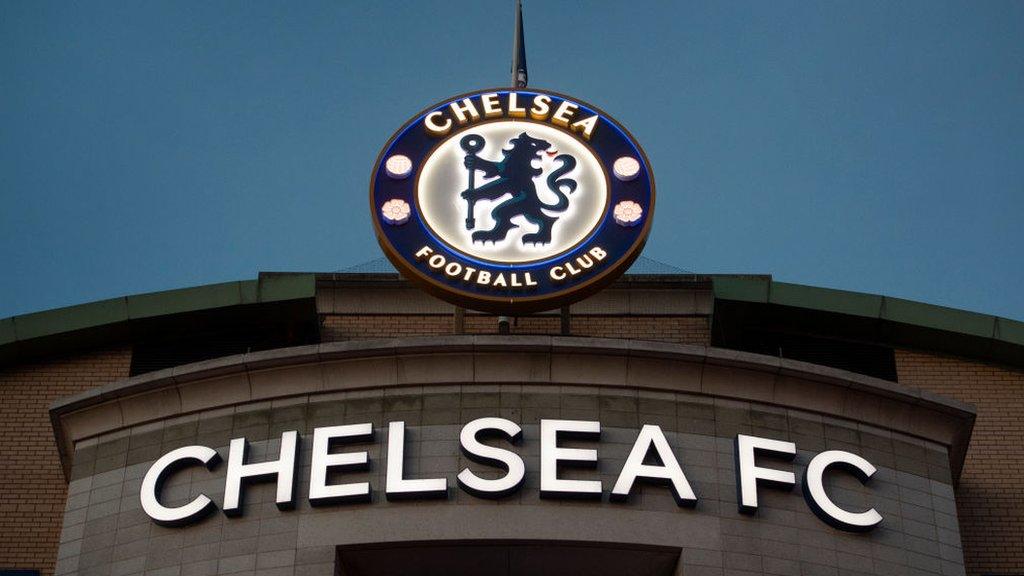
- Attribution
- Published4 March 2023
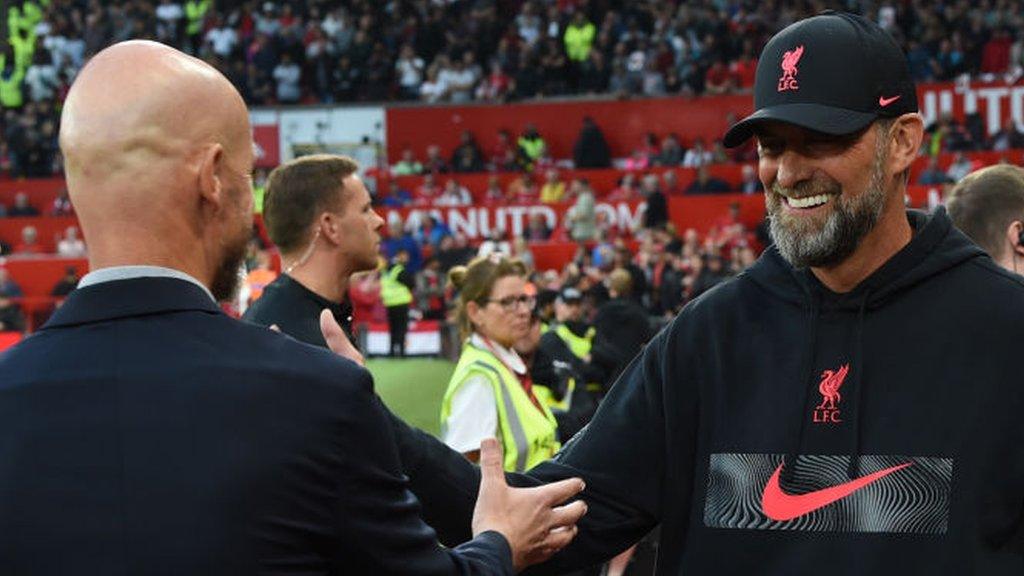
- Attribution
- Published12 February 2023
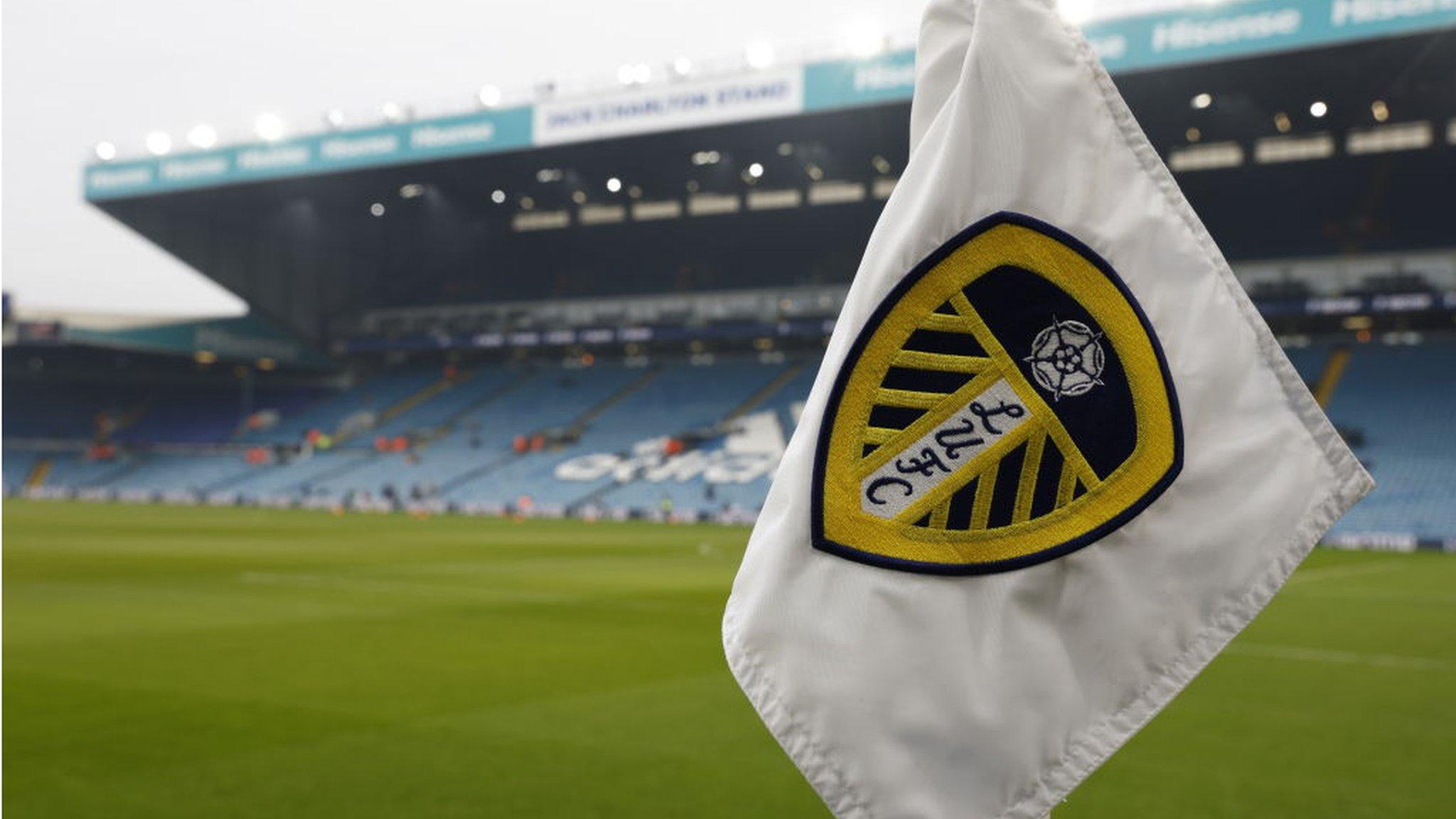
- Attribution
- Published24 January 2023
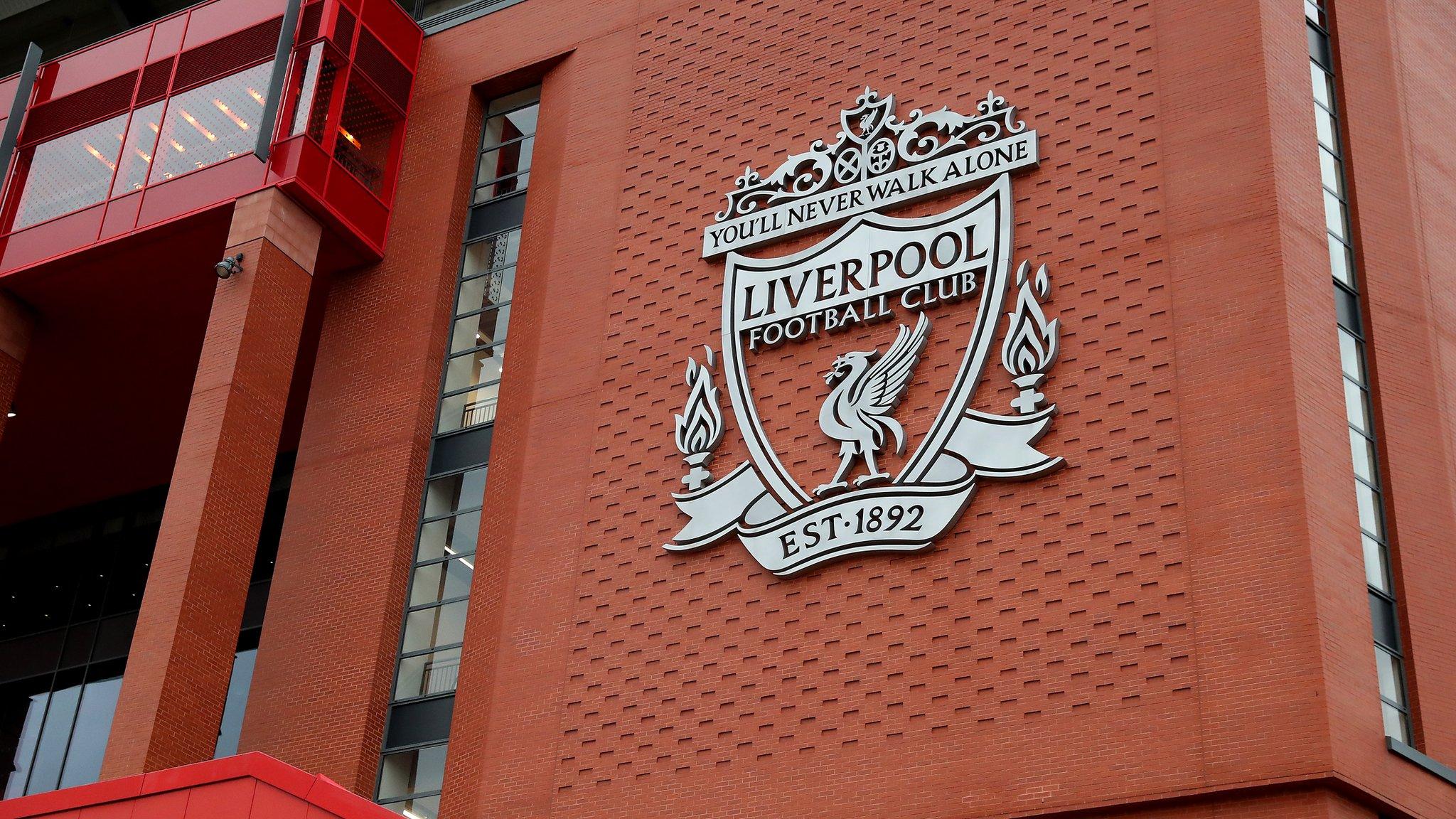
- Attribution
- Published2 November 2022
